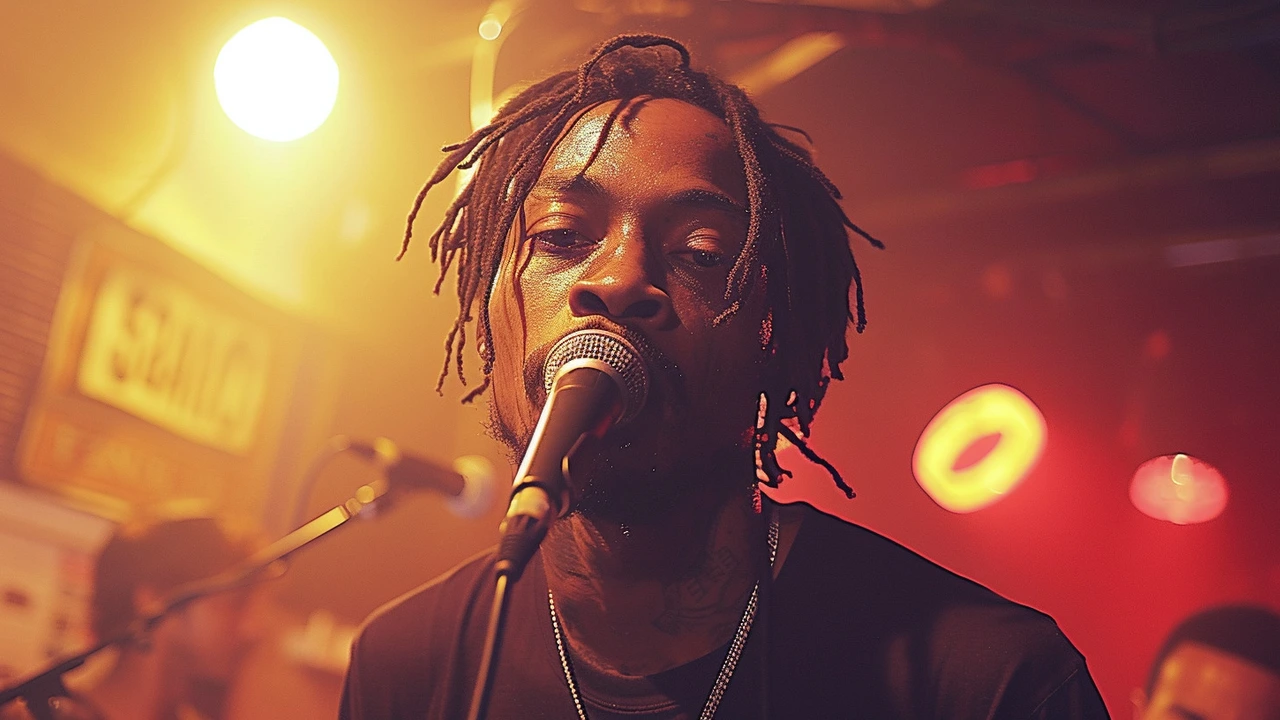The Roots of Reggae: Jamaica's Original Heartbeat
One day, as I sat idly soaking in the peculiar rhythm of a sound dear to my heart, a few fragments of a melody elegantly scratched an itch deep inside my temporal lobes. That was the day this city boy from Idaho fell head over heels for Reggae. Yes, you read it right, Zephyr here is an ardent lover of Reggae music. Laden with a guitar lullaby, enshrouded in the wafting scent of Caribbean spices and the sultry essence of Rasta culture twining around my auditory nerves, I was in thrall of the heartfelt delight in its wake. I marveled at the embedded activism and sheer audacity of this vibrant genre, all the while swaying to the beat of the offbeat rhythm, feeling the sun setting beyond the horizon.
But where did this mesmerizing music originate from? For something that so profoundly stirs the spirit, it seems to hold possess of mythical proportions. Reggae music had its inception in the late 1960s in Jamaica, The land of wood, water, and the birthplace of Bob Marley. Stemming from the underbelly of the Caribbean cultural ensemble, Reggae, which often tackles socio-political issues, was a voice crying out in the wilderness. Its heartbeat-esque rhythm cuts across boundaries, a shared love language embracing cultures worldwide.
Reggae Revolution: The Rhythmic Rebellion
Keeping the background in mind, let's dive into the fascinating waters of Reggae's Revolutionary period. Reggae music was not just a genre; it was a rebellious statement, a voice against oppression, inequality, and political turmoil. Musicians used it as a tool for liberation, advocating for a united world under love and faith. It was a rhythmic rebellion! Here’s a thought for you, in a world steeped in chaos, Reggae music became the echoing declaration of freedom and independence, the emancipation proclamation of the oppressed.
Sometimes, rebellion needs a soundtrack. Imagine the scene, the year is 1960 something, strikes and uprisings filled the streets of Jamaica, the air thick with tension. And amidst this chaos, Reggae music served as the background score. Iconic performers such as Bob Marley & the Wailers spoke to the masses through their music, voicing the collective grievances, hopes, and dreams of their people. The infectious rhythm got the people moving, fuelling the revolution, sparking a most beautiful metamorphosis.
The Rhythmic Language: Dissecting the Heartbeat
What gives Reggae its unique charm? Jump into any Reggae track and find yourself opening your senses to a world of rhythmic complexity and nuance. Plumbing the depths of this unique rhythmic language with me would be akin to an exciting journey of aural exploration. It's heart-thuddingly powerful, how the characteristic "skank" guitar rhythm sends cascading waves of swing-inducing vibes through your body, demanding an immediate psychosomatic response!
Reggae has a distinctive rhythm known as the 'beat.' The key aspect lies in the alternation between the downbeat and the upbeat accenting the second and fourth beats, contrary to most Western music which typically emphasizes the first and third. It’s like encapsulating the rhythm of life itself, the alternating cadence of rest and movement. I’m certain you’ve experienced this duality too. On a sunny day at the beach, feet buried in the warm sand, ice-cold drink in hand, sun on your skin, Reggae track playing on the radio... feel the second and fourth beat? That right there, that’s the heartbeat of Jamaica surfacing in the soundtrack of your memory!
Reggae and Rastafarianism: Colorful Covenant
Delving into Reggae without brushing upon Rastafarianism would be a gross dereliction of duty. Reggae and Rastafarianism are interconnected at a profound cultural, philosophical, and spiritual level. Representing an Afro-Jamaican spiritual and political movement, Rastafarianism has deeply influenced Reggae music's development over the years. The themes of Reggae songs often reflect Rastafarian values and teachings.
Take an iconic Reggae song like "Three Little Birds" by Bob Marley. This song, emblematic of Reggae’s comforting charm, embeds an inherent Rastafarian belief of optimism and unwavering faith. While you might find yourself softly humming the tune and tapping your feet to the rhythm, it quietly infuses a sense of positiveness. In the symphony of life, we all share struggles and joy, and sometimes, a simple tune can fill us with renewed hope.
Reggae Now: The Heartbeat Goes On
Fast forward to the present, and it's hard to deny the longevity and sustained appeal of Reggae music. From the robust strains of the bassline in the heartland of Jamaica to the blaring speakers in a bustling city halfway across the globe, Reggae music still reigns supreme. Its eternal relevance, fundamentally imprinted on the heart of every Reggae enthusiast, beats as the collective soul of Jamaica.
Modern reggae artists like Protoje, Damian Marley and Chronixx are testament to the enduring appeal of the genre, exploring contemporary themes while still retaining the tradition and spirit of Reggae. With over 50 years of rich history, the heartbeat of Jamaica continues its rhythmic pulsation across the globe staking its claim as a timeless symbol of freedom, peace, and unity.
So, whether you're stretching out on a sandy shoreline, watching the surf roll in, or simply lounging on your couch, toes idly tapping to the rhythmic pulse echoing from your speakers, remember, the heartbeat of the Caribbean isn't too far from reach. As for yours truly, Zephyr, I amuse myself with a Reggae tune, rejoicing in the vivid colors of my imagination where I'm swaying to the rhythm on sun-kissed, Jamaican beaches.

